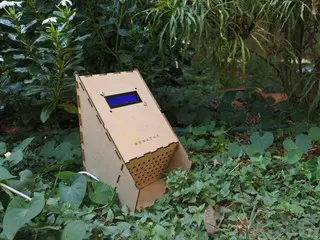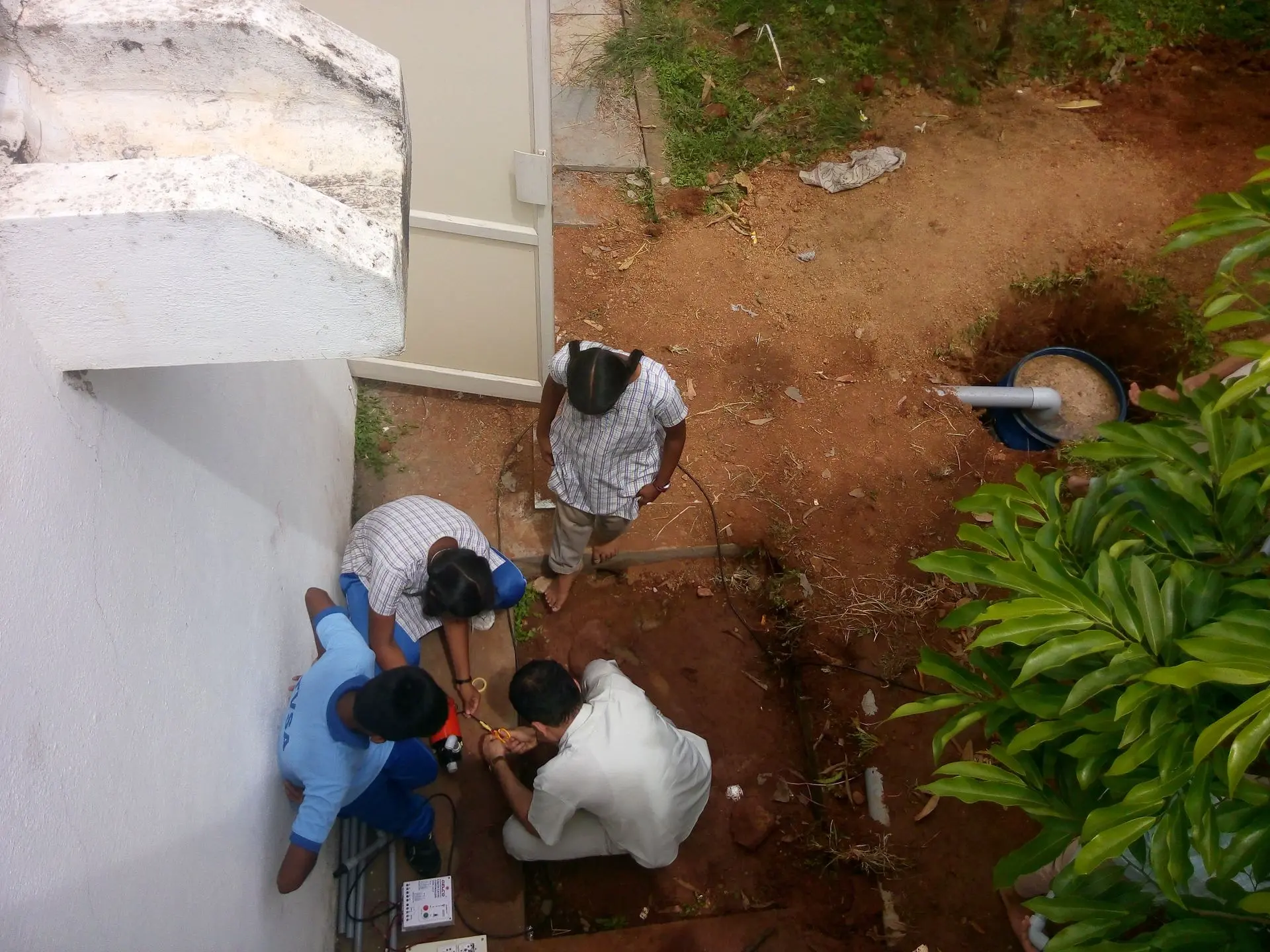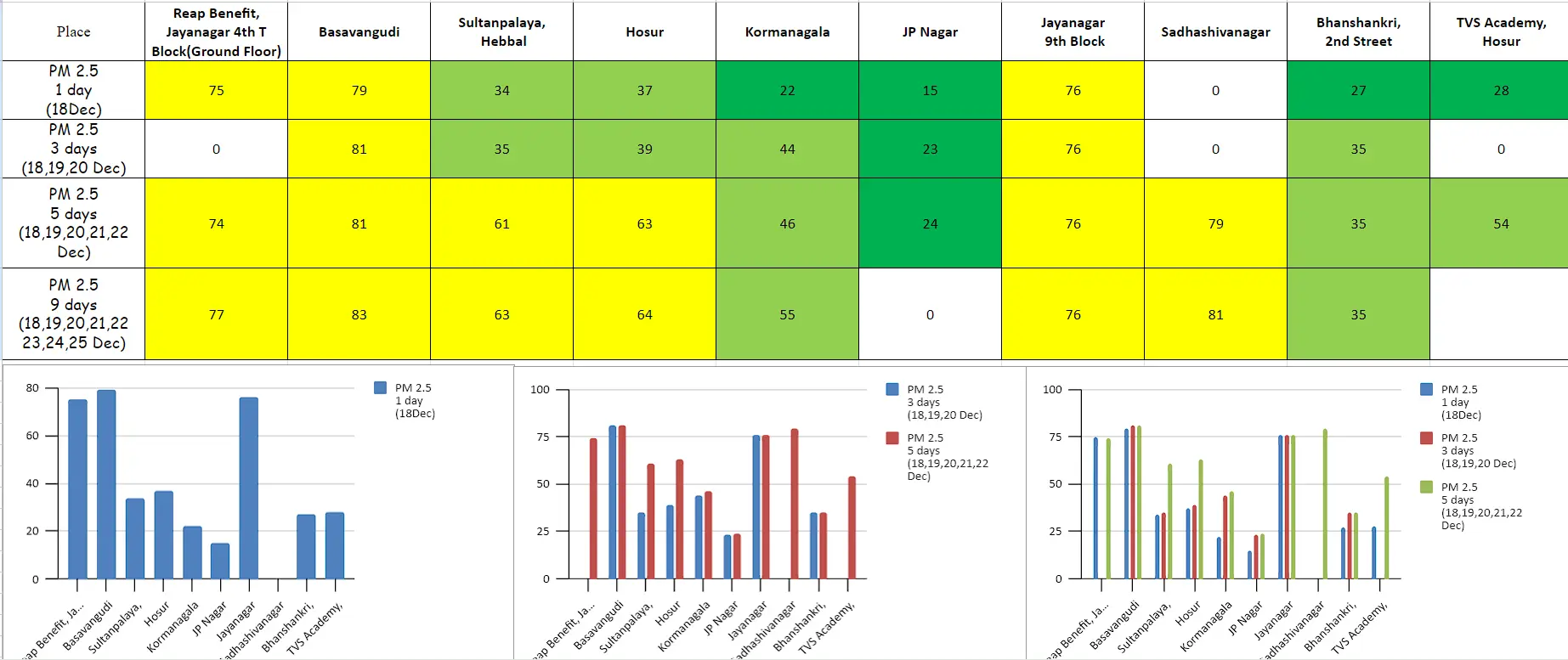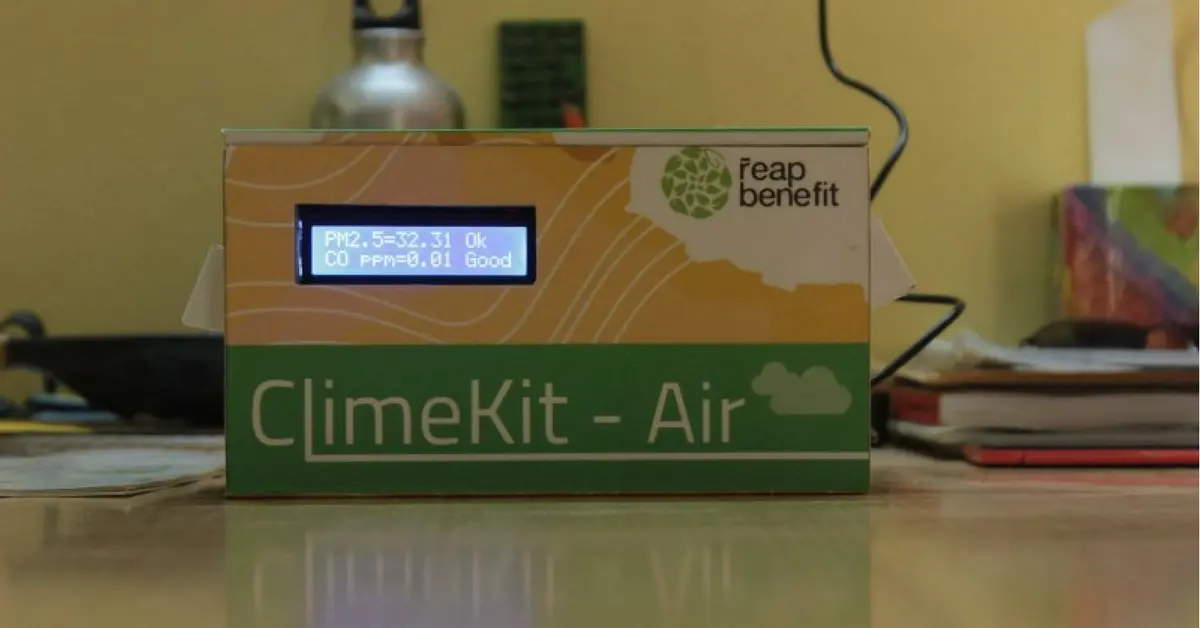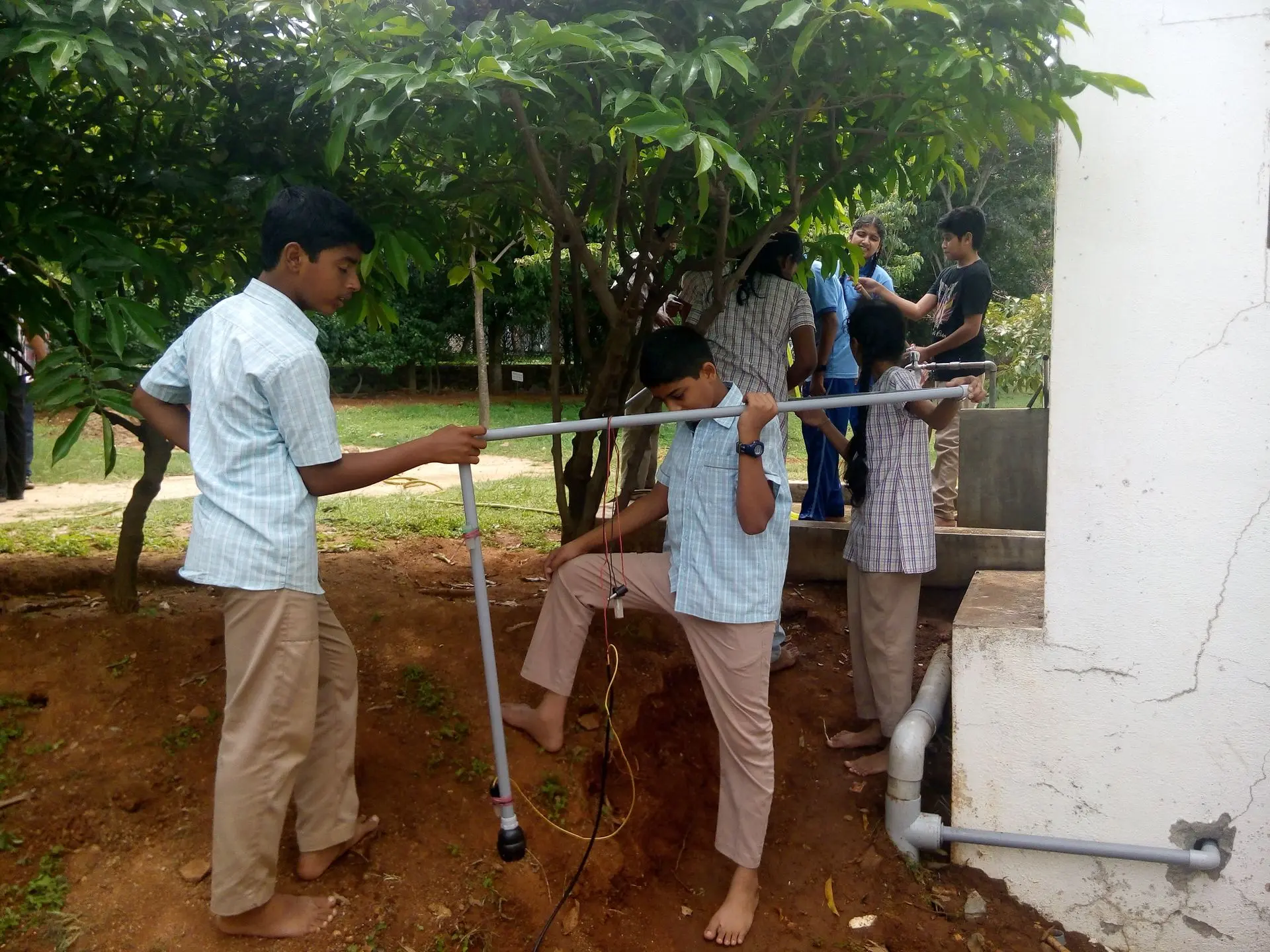Greywater Harvesting and Air Quality Monitoring: Sustainable Solutions for Resource Management
With a drive to implement sustainable solutions, I led two projects focused on water conservation and air quality improvement. These initiatives not only optimized resource management but also contributed to environmental health and well-being in my community.
Greywater Harvesting System
- Led the installation of a greywater harvesting system that collected wastewater from handwash basins and utensil-washing sinks.
- Filtered and stored the water in an underground drum, which was then pumped out to irrigate plants using a motorized sprinkler system.
- Personally managed the maintenance and performance of the system, checking the motor and sprinkler daily for 8 months to ensure operational efficiency.
- This system saved and reused over 60,000 liters of water, preventing waste and promoting sustainable water use in the area.
Air Quality Monitoring Stations
- Managed two air quality monitoring stations placed in Hosur, one at my home and another at TVS Academy, for almost a year.
- Responsible for daily maintenance, data collection, and troubleshooting technical issues at both stations to ensure consistent monitoring.
- Analyzed the air quality data, using it to inform strategic decisions for campus landscaping. Areas with higher pollutant levels were targeted for planting species that are effective at absorbing pollutants.
- Played a crucial role in positioning plants and trees to reduce air pollution, helping to improve the air quality in the vicinity.
- Shared the air quality monitoring data with Reap Benefit servers for further analysis and advanced research, supporting larger-scale environmental efforts.
These projects not only enhanced resource efficiency but also left a lasting environmental impact. By combining sustainable water conservation with data-driven air quality improvements, I helped create a healthier, more resilient community.
60000
Liters of Water Re-Utilized for Irrigating Plants
2
Air Quality Monitoring Stations
300+
Hours Invested in Both the Systems
